Ratcheting Stubby Screwdrivers: LTT, PB Swiss, Snap On, Wera, GearWrench, Williams, Irwin, MichaelPro, Milwaukee, Klein Tools, Husky, Lenox, SATA and Black+Decker. Ratcheting screwdrivers are compared for efficiency and precision. Tests include working arc swing, ratchet back drag, magnet strength, bit retention strength, build quality (shaft wobble), shaft rotation in the locked position, bit failure load, and screwdriver failure load.
The following screwdrivers were tested. For more details, you can check out these products:
- PB Swiss: Available at the LTT Website/Store
- Matco Tools: Available at the Matco Tools Store
- Snap On: Available at the Snap On Website/Store
Choosing the Ultimate Stubby Screwdriver
A compact stubby screwdriver can be a game-changer when working in confined spaces, saving valuable time. The question arises: Is the new LTT Rise Things W screwdriver on par with or even better than its competitors? Let’s delve into the details. Our first test will assess the efficiency of the ratcheting screwdrivers’ Arc swing, followed by an examination of their build quality – the best and the worst.
Priced at $12, the Stanley brand offers a three-position switch, clockwise and counterclockwise ratcheting, and a locking position. It boasts a magnetic bit holder for secure storage and six different bits. The product is from Taiwan and finished in China, with all bits made there. The Stanley screwdriver weighs 127.03 grams.
Efficiency Test: Arc Swing
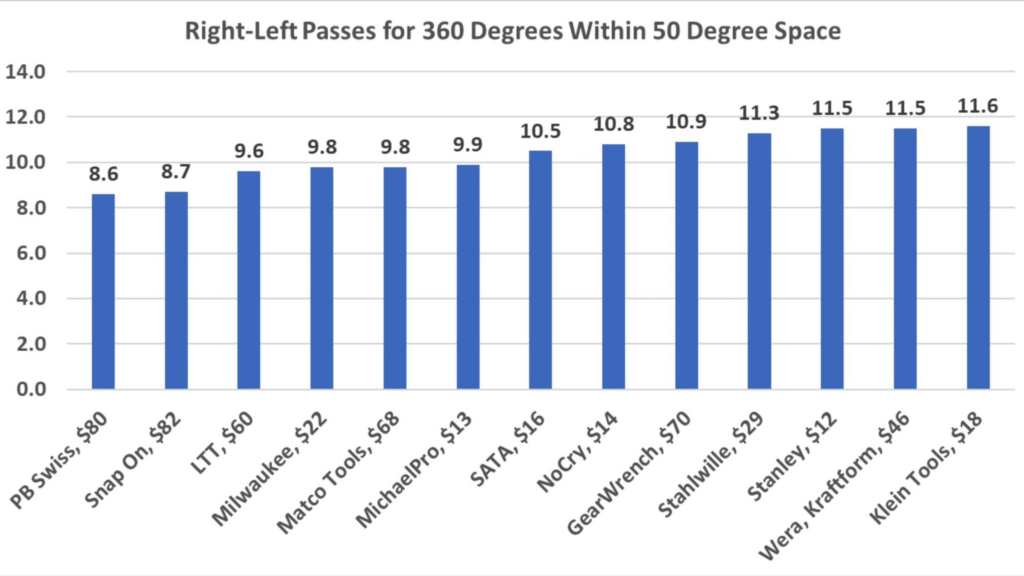
In our initial test, we’ll evaluate the performance of the ratcheting mechanisms within a 50-degree space. This helps account for variations in hand mobility. Our test involves attaching an Allen wrench to the handle and measuring how many back-and-forth passes are needed for a full 360-degree rotation. The Stanley’s gear set demonstrates noticeable movement, requiring 11.5 right-to-left passes to complete the rotation within the defined space.
Moving up to a $13 price point, the MichaelPro boasts a smooth ratcheting mechanism, ergonomic handle design, and enhanced comfort. Its kit includes forward, reverse, and locked positions with seven bits. Unlike the Stanley, the Micro Pro provides storage space for six bits in its handle. This Taiwan-made tool weighs just over 105 grams. The Micro Pro showcases refined gear set performance, requiring only 9.9 passes for a full rotation.
Build Quality Assessment
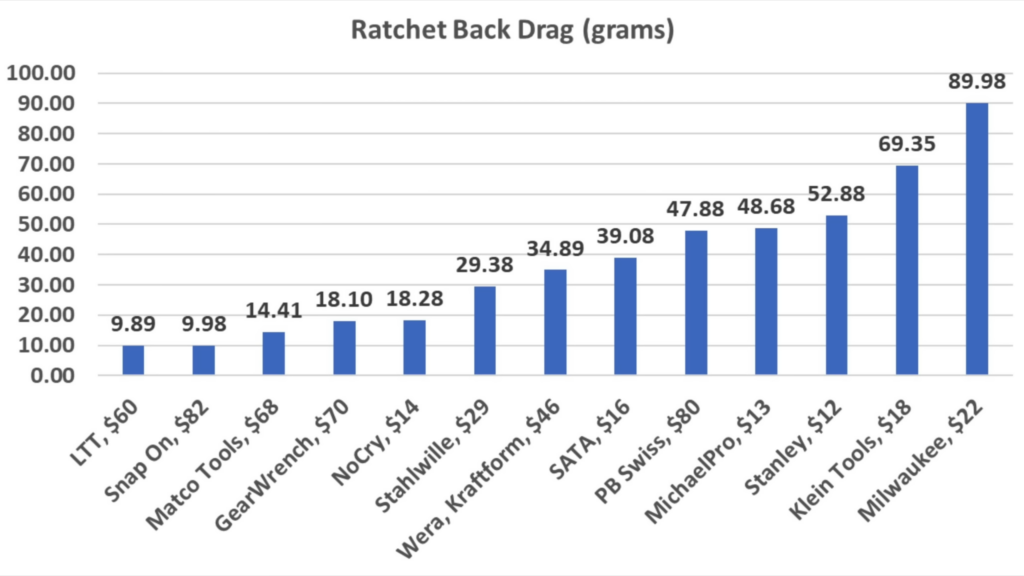
Stepping up to $14, we encounter the No Cry brand with its forward, reverse, and locked positions, accompanied by a 10-tooth ratcheting mechanism. This kit includes six double-ended screwdriver bits, made in Taiwan, weighing 119.56 grams. With each pass, the No Cry ratchet offers about 33 degrees of progress within its workspace. As a result, it secures second place, outperforming some pricier alternatives.
The $11 Sata brand ratcheting screwdriver claims a smooth mechanism with six bits. Its back cap stores all included bits magnetically within the handle. Sada asserts that its bits are crafted from high-grade tool steel capable of handling torque. This China-made tool weighs 103.11 grams. Like the No Cry, the Sada ratchet makes around 33 degrees of progress, securing a commendable second place at 10.5 passes.
Higher Priced Options
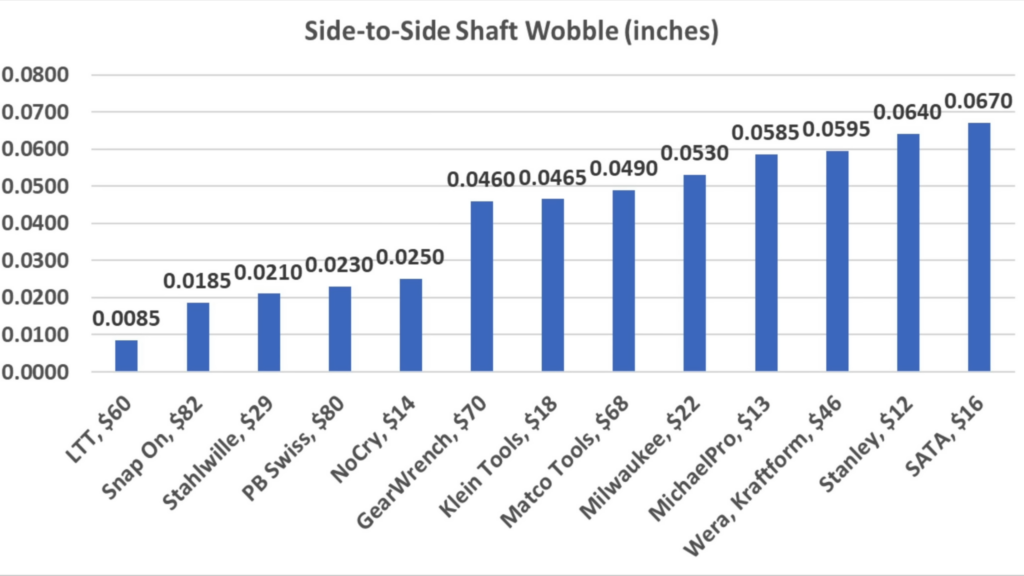
Elevating the price to $18, the Klein Tools brand enters the scene, offering a handle optimized for maximum torque and comfort. It includes forward, reverse, and locked positions and comes with six bits. At a glance, the Klein Tools’ ratchet is tailored for tight spaces, though its efficiency isn’t entirely on par with some rivals. It takes 11.6 passes to achieve a full rotation.
The Milwaukee brand, priced at $18, emphasizes high torque and has power tool-ready bits. Its pass-through handle design distinguishes it. Manufactured in Taiwan, this tool weighs 152.42 grams. Milwaukee achieves around 37 degrees of progress with each pass, achieving its lead in efficiency at 9.8 passes.
German Precision and Premium Quality
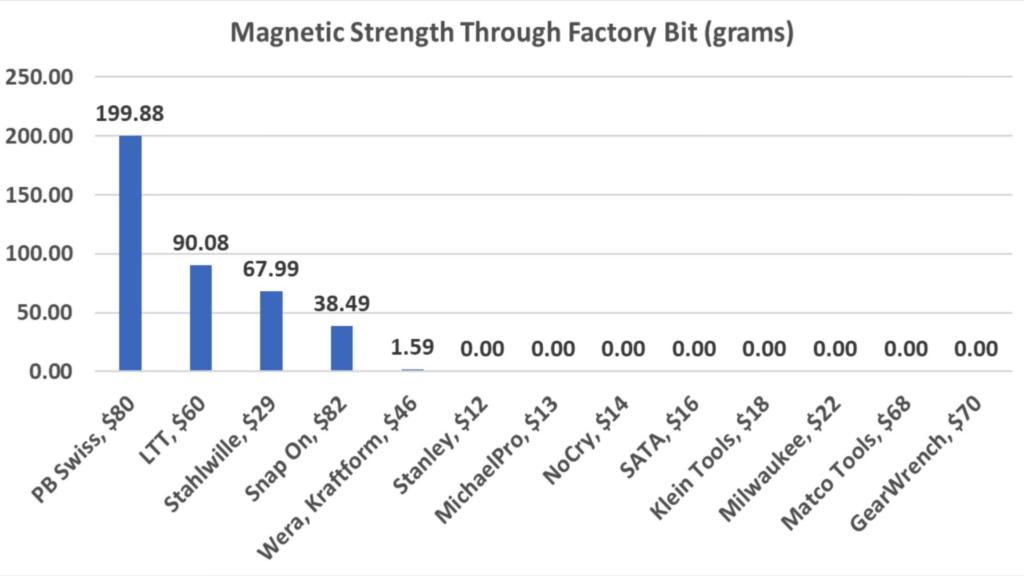
At a higher cost of $38, the Stahlwille brand enters the fray with a 48-tooth ratcheting mechanism boasting a mere 7.5-degree working Arc swing. The Star Wheel lacks onboard bit storage and ships without any bits. Hailing from Germany, it weighs 139.34 grams. Although the Star Wheel showcases excellent build quality, its ratcheting mechanism efficiency trails behind some competitors, requiring 11.3 passes.
Moving forward to a $56 price point, the Wera brand offers six standard one-inch bits of storage in its handle. Coming from Germany, the Wera screwdriver weighs 138.44 grams. Remarkably, the Wera performs like the Star Wheel at 11.5 passes, securing a close position behind the leader.
Advanced Designs and Performance
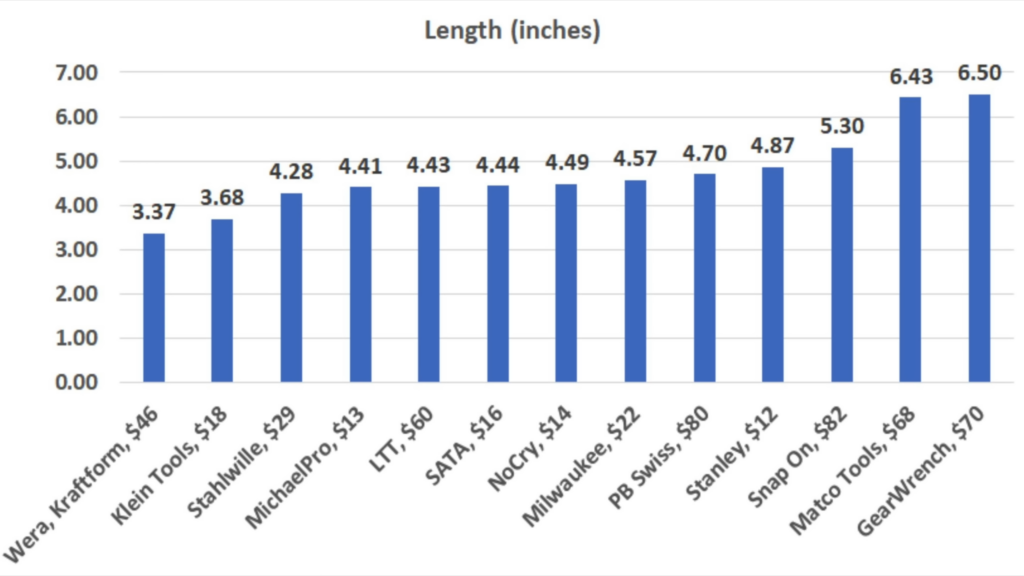
Let’s explore the Linus Tech Tip screwdriver, priced at $68. This product comes with a note from Linus himself and offers five bits and a magnet. Its ratcheting mechanism includes forward, reverse, and lock positions. Notably, the Linus Tech Tip screwdriver boasts an ergonomic knurled shaft for precise adjustments and weighs 122.09 grams. Regarding ratcheting mechanism performance, it rivals even Milwaukee, taking the lead at 9.6 passes.
Stepping into the higher price range, the Matco Tools brand presents a robust 40-tooth geared ratcheting mechanism touted for strength and durability. This Taiwan-made tool weighs 188.71 grams. The Matco Tools demonstrates robust performance, achieving around 37 degrees of progress with each pass and securing a solid second place at 9.8 passes.
Bit Retention Strength and Conclusion
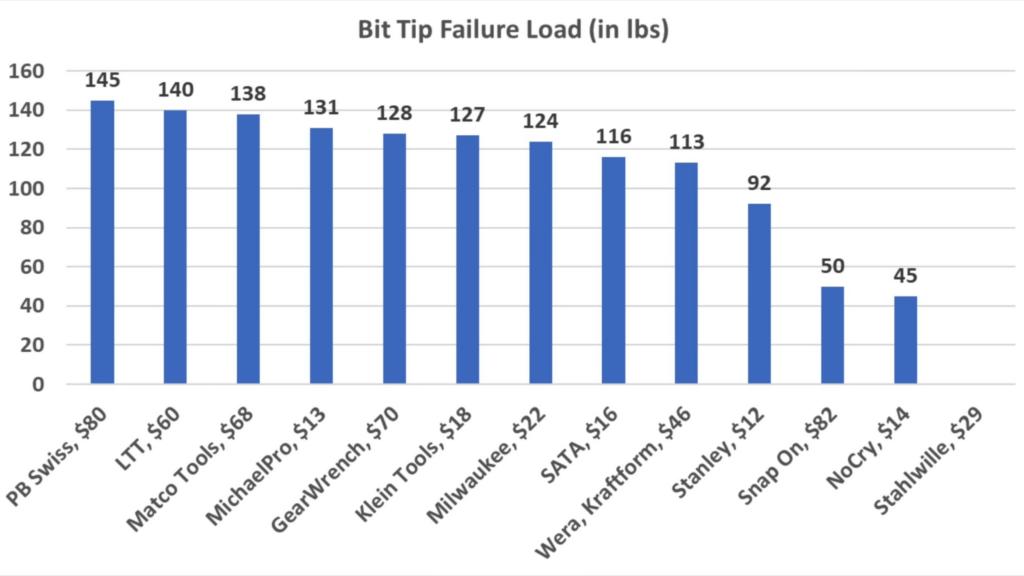
It’s worth noting that the tests don’t just end here; there’s also the critical factor of bit retention strength. The PB Swiss stands out among the contenders, providing premium steel bits and securing the highest bit retention strength at 2310 grams. This exceptional performance highlights its focus on quality.
Conclusion
In conclusion, when choosing the ultimate stubby screwdriver, a wide range of options are available, each with unique features and benefits. Whether you prioritize efficiency, build quality, ergonomic design, or bit retention strength, you can find a screwdriver that suits your needs and preferences.
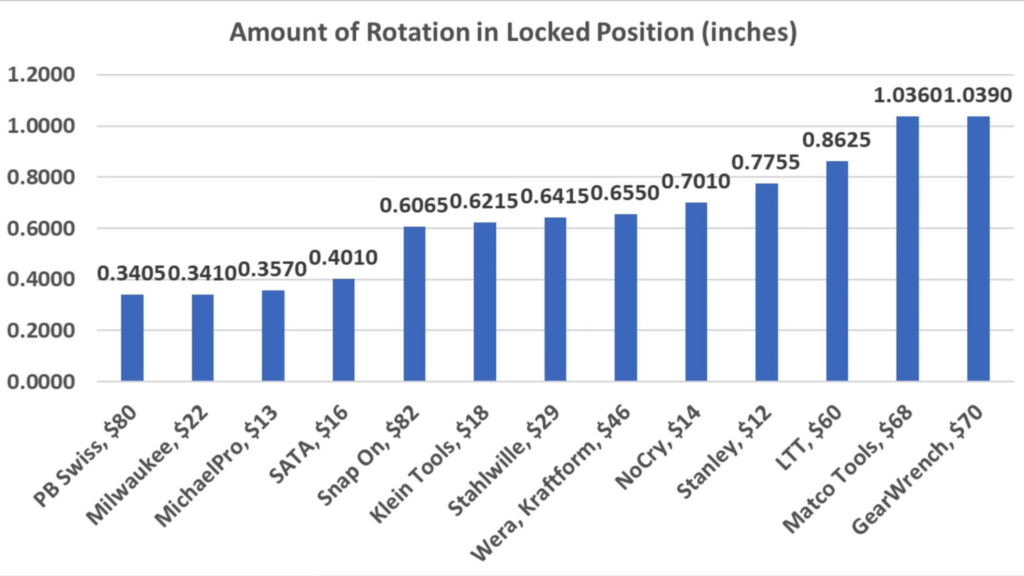
From the budget-friendly Stanley to the high-performance Milwaukee, the versatile Wera to the innovative Linus Tech Tip screwdriver, each brand brings its strengths to the table. It’s essential to consider factors like working Arc swing, ratcheting mechanism efficiency, and bit retention strength when making your decision.
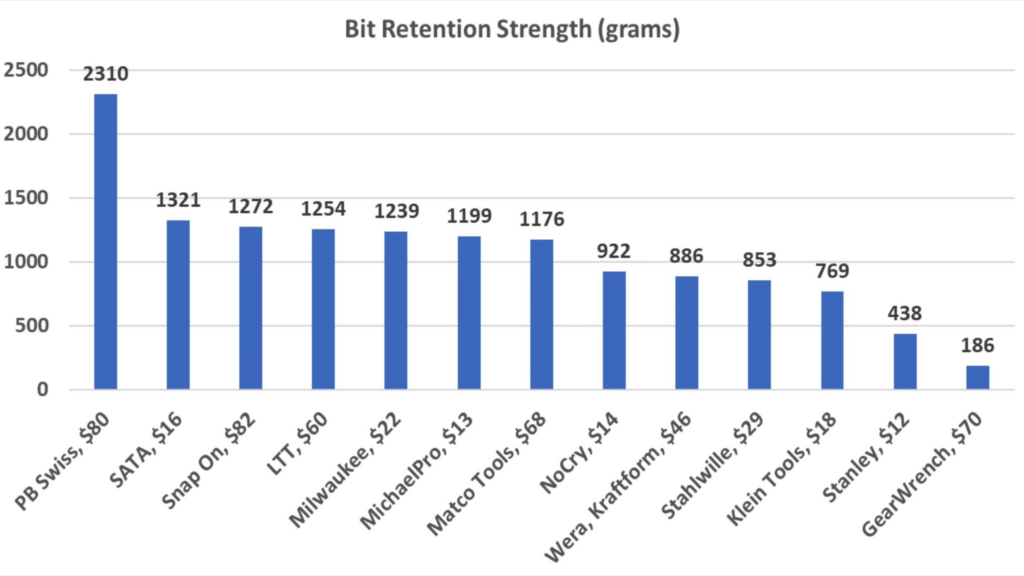
You can check out the provided product links to further explore these options and make an informed choice. Whether you’re a professional tradesperson or a DIY enthusiast, the right stubby screwdriver can make a significant difference in your projects, especially when working in tight and confined spaces.
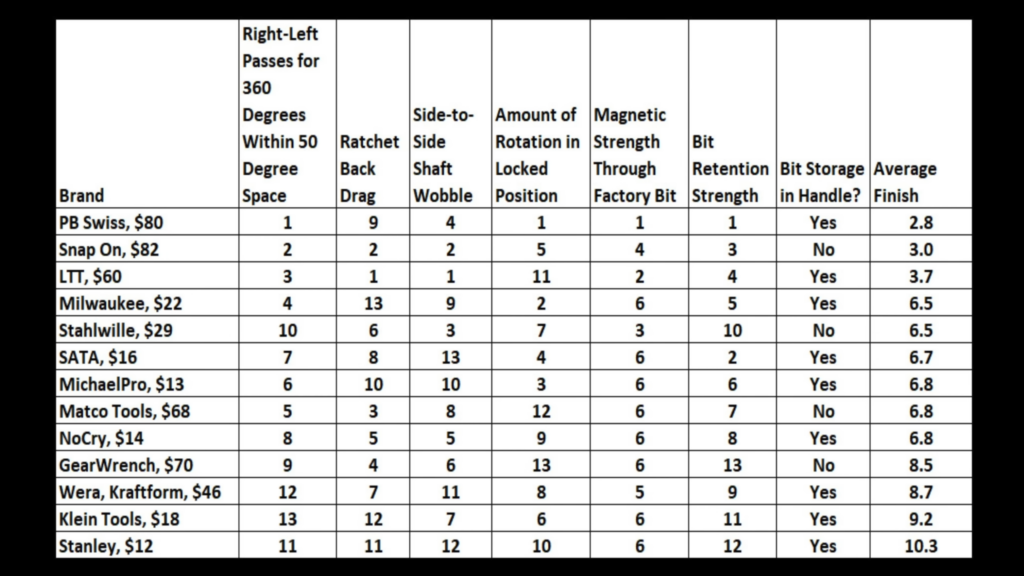
FAQ: What Should I Consider When Choosing a Stubby Screwdriver?
When choosing a stubby screwdriver, several important factors should be considered to ensure you select the best tool for your needs. From the design and functionality to the quality and price, here are the key aspects to take into account:
- Intended Use and Application:
Determine the tasks you’ll be using the stubby screwdriver for. Different tasks may require different levels of torque and precision. Consider whether you need a stubby screwdriver for general tasks, electronics, automotive work, or other specialized applications. - Design and Ergonomics:
Look for a stubby screwdriver with an ergonomic handle design that provides a comfortable grip. Since stubby screwdrivers are designed for tight spaces, a comfortable grip is essential for prolonged use without causing strain or discomfort. - Ratcheting Mechanism:
Check the ratcheting mechanism for smooth and efficient operation. A reliable ratcheting mechanism lets you easily switch forward, reverse, and locked positions, enhancing efficiency. - Build Quality and Durability:
Quality materials and solid construction are crucial for a stubby screwdriver’s longevity. Opt for brands known for their build quality to ensure the tool can withstand regular use and potentially challenging conditions. - Bit Compatibility and Storage:
Consider the types of bits included with the screwdriver and whether they match the screw types you commonly encounter. Additionally, built-in bit storage can be valuable, keeping your bits organized and readily accessible. - Arc Swing Efficiency:
Arc swing efficiency refers to the number of passes required for a full 360-degree rotation. A lower number of passes indicates greater efficiency, which is particularly important in confined spaces. - Magnet Strength:
If you often work with screws in hard-to-reach places, a strong magnet in the screwdriver’s tip is advantageous. It prevents screws from falling and makes positioning easier. - Price and Budget:
Set a budget for your stubby screwdriver and consider the features you’re getting for the price. While some high-end models offer advanced features, there are also budget-friendly options that provide good value. - Brand Reputation:
Research the reputation of the brands you’re considering. Brands that produce reliable and durable tools are likelier to deliver quality stubby screwdrivers. - Warranty and Customer Support:
Check if the screwdriver comes with a warranty and reliable customer support. This can be valuable if you encounter any issues or need assistance with your tool.











Leave a Reply